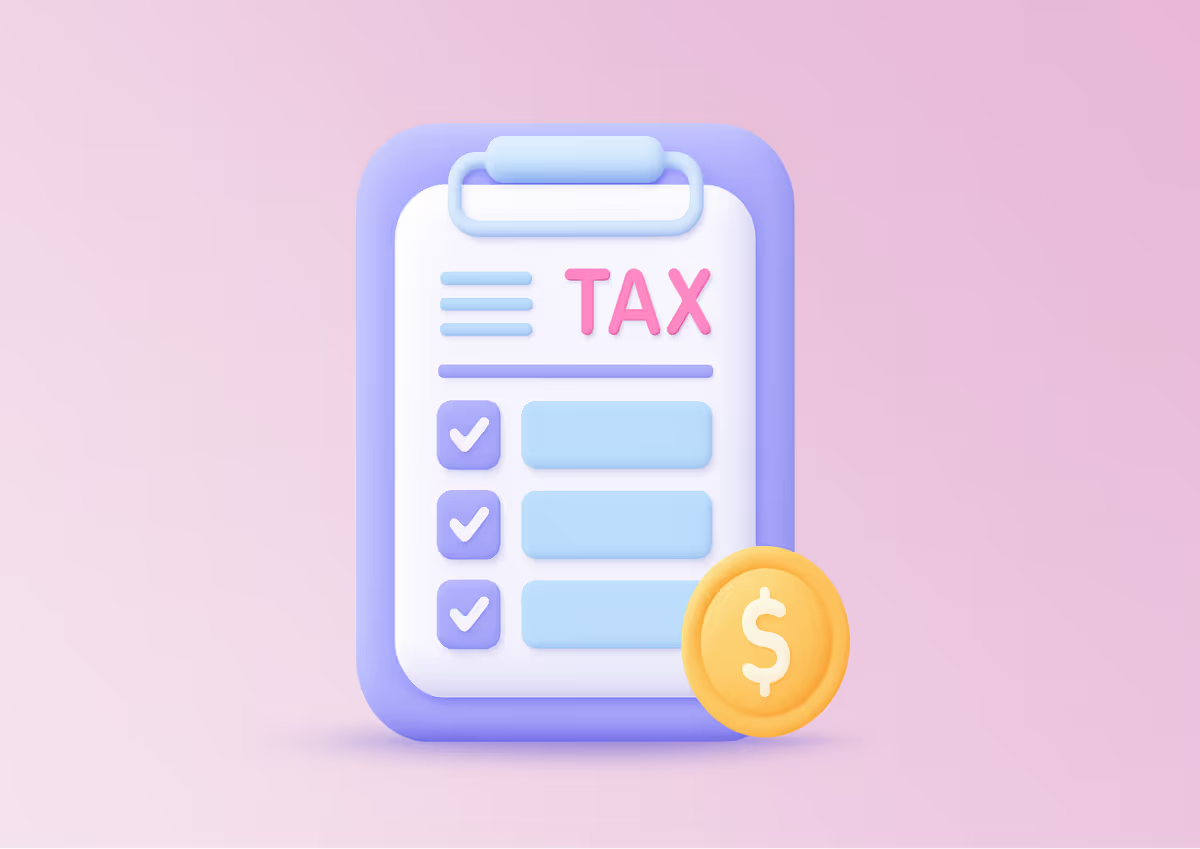Change the Way Your Firm Performs with Cloud-Based Automation
Learn how to streamline all your client accounts with cloud-based accounting software. Fast and without losing margins.
Learn best practices and tips from Eleven to streamline your tax processes effectively.

Advanced accounting software simplifies VAT and sales tax management by automating calculations and ensuring compliance.
In this article
Managing sales tax and value-added tax for a business can be a complicated and laborious process. As tax regulations evolve, companies need efficient solutions to ensure compliance. Accounting software with sales tax and VAT management capabilities can simplify this process significantly. This article will focus on different ways such software can be harnessed to help businesses, key features essential to look for in the software, and practical tips on implementing these features.

Sales tax is the consumer tax levied by the government on the sales transaction. In general, this tax is added at the point of sale and then finally collected by the seller, who ultimately transmits such collected amounts to the government. The rates and regulations for this sales tax can vary with a huge difference, which makes it quite an arduous task for a company to comply with when it operates from various places.
The second type of consumption tax is the Value Added Tax, which is a universal tax imposed on all production chains and distribution points. VAT is an incremental consumption tax charged on enterprises in which companies incrementally include the tax they are bound to pay into other sales invoices, and the quantum of this levy tax may be offset against tax due on matching inputs purchased from suppliers. The system demands that information be recorded to ascertain and report data as per the needs.
.jpeg)
Both sales tax and VAT can significantly affect business. Huge fines come about if miscalculations are made, or it is not done as stated in the rules, and a company's reputation might be under threat. Therefore, knowing and controlling these taxes is primordial for the adequate and legal functioning of an enterprise.
The sales tax and VAT management compliance software have many benefits for businesses in terms of adequately managing compliance regarding these taxes. With such software in place, one can mostly remain free of any human errors in making their tax calculations, which thus shall ensure the correct amount of taxes is collected and remitted. This is important because rules and rates concerning taxes may often change.
Would like to express that automating tax processes will give accountants more time for more strategic work. Manual calculation is tedious, and compliance checking and automation can speed up the process.
This software will, however, ensure that business is at par with current tax regulations and rates, therefore reducing the emerging risks of penalties for non-compliance. It automatically updates with new tax laws over time, keeping businesses compliant without manual intervention.

The advanced features of the reporting ensure clear insights into tax liabilities and transactions, which are a significant contribution to financial planning and auditing. More detailed reports help to identify trends and discrepancies in tax payments and collections.
The software can handle increased transaction volumes and multiple tax jurisdictions as businesses grow. Such a feature is crucial for companies interested in improving their operations without being bogged down by diabolical tax compliance issues.
Though there is an upfront cost in using tax management software, the reduction in the error and penalties is high, and in the long run, the labor costs can be cut significantly.
When choosing sales tax and VAT automation accounting software, consider the following key features.
The system would automatically calculate the right amount of sales tax and VAT based on the applicable rate in force and the prevailing directives in such a manner that businesses are always assured of getting the right price on sales.
Real-time updates should be made to the tax rates and rules so that ongoing compliance can be assured. The software stays updated with accurate and compliant tax laws, as they change pretty frequently.
The systems need to be integrated with the existing accounting system and e-commerce platforms to have a smooth operational process. The integration can also be done to reduce the level of manual data entry into systems and assist in maintaining consistency in systems.
There is a severe requirement for comprehensive reporting tools to dance around tax liabilities and, if possible, undertake audits. The tools should have provisions for customizable reports as per the business requirement.

The software should include handling different tax jurisdictions in various regions and their specific rules. This feature is critical for international companies or companies that operate over state lines.
An intuitive interface allows for easy usage, with a decrease in the learning curve for accountants and staff. Good interface design can increase efficiency and reduce the number of errors.
Support notifications and alerts for tax due dates on the horizon, as well as regulatory changes, to help businesses stay one stride ahead of compliance requirements. The software should have an audible audit trail where all the transactions related to tax are clearly shown so that it is very easy to trace and confirm the payment of proper taxes.
Regarding the software aspect, several careful selection factors must be considered. Business requirements, including the number of partakers and transactions and jurisdictions in which tax is done, must be thoroughly evaluated. Consider the complexity of your tax situation, then look at the type of software that can deal with it.
Budget your funds and compare software that would give you the maximum value for the money. Look for a balance between the cost and functionality of software applications.
Get software only from trusted vendors where you will access the most reliable solutions for tax management. Do customer reviews and real-life use cases so you understand the impact of the software.
Ensure the software provider has a sound system for implementation and troubleshooting support. Good customer support services can fill the gap in the loop when using the software.
Opt for business-growth-oriented software: it should be capable of handling increased transaction volumes and more tax jurisdictions. Consider how your business plans might change over time and, say, go international, then choose software that can scale to it.

Look for software that can be customized to your business processes and taxes as necessary. Customizable software may be focused on making unique solutions to satisfy concrete business needs encountered.
Implementing sales tax and VAT management software can be straightforward with the right approach. Provide comprehensive training for your accounting team to ensure they are proficient in using the new software. Training should cover all aspects of the software, from basic functions to advanced features.
Carefully migrate existing tax data to the new system to ensure continuity and accuracy. Data migration should be planned and executed meticulously to avoid data loss or corruption.
Keep the software updated with the latest tax rules and rates to maintain compliance. Regular updates ensure that the software remains accurate and effective.
Conduct thorough testing of the software to identify and resolve any issues before full implementation. Testing should include all possible scenarios to ensure the software performs as expected.
Continuously monitor the software’s performance and make adjustments as needed to optimize its functionality. Regular performance reviews can help identify and address any issues promptly.

Encourage feedback from users to identify any pain points or areas for improvement. User feedback can provide valuable insights into how the software can be optimized.
Proper leveraging of the accounting software for sales tax and VAT management would take business tax compliance processes to superior levels. A correct choice, together with the proper deployment of the software, assures that companies are accurate in their dealings, saving much time and keeping the companies compliant at all times, even in the face of ever-changing rules on taxation. Further support for such software with training aids and updates ensures that businesses have the upper hand in managing their tax affairs over others.
Of course, it depends on your business requirements. Global market leaders in this space—again, to be very general—would include Avalara, Eleven, TaxJar, and Vertex. All of them have features that are now taken for granted and have been proven over time to work reliably.
Yes, Eleven offers an automated complete accounting software package for the sale of taxes and VAT to fulfill the needs of the accountant and business. It automatically calculates taxes, maintains real-time information, and provides detailed reports, keeping everything aligned with compliance and effectiveness.